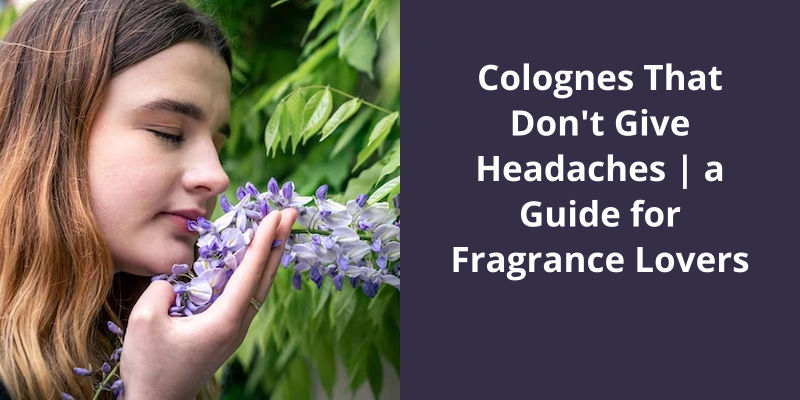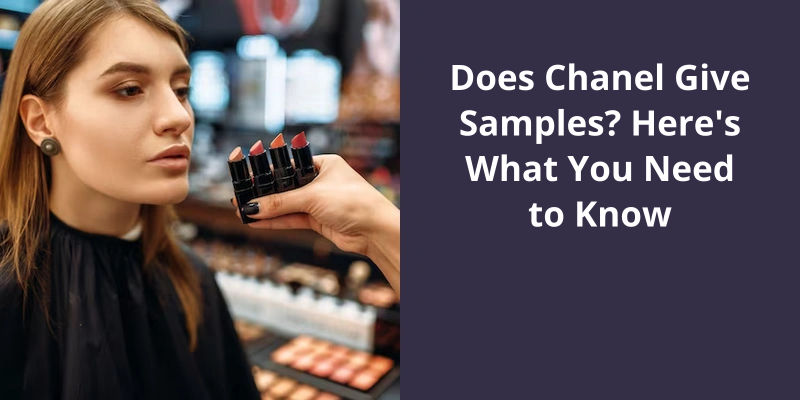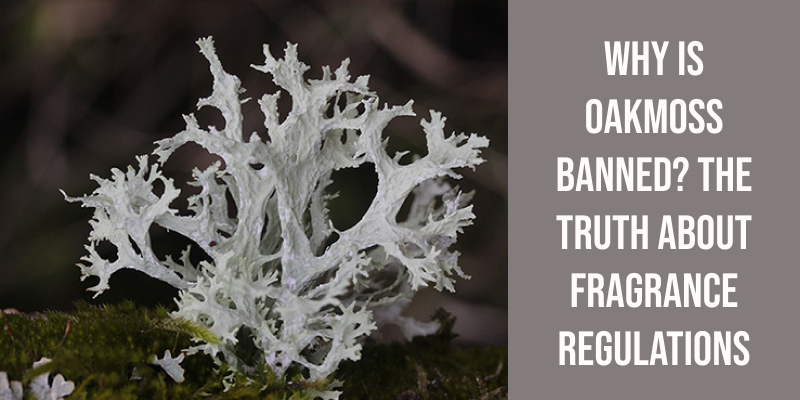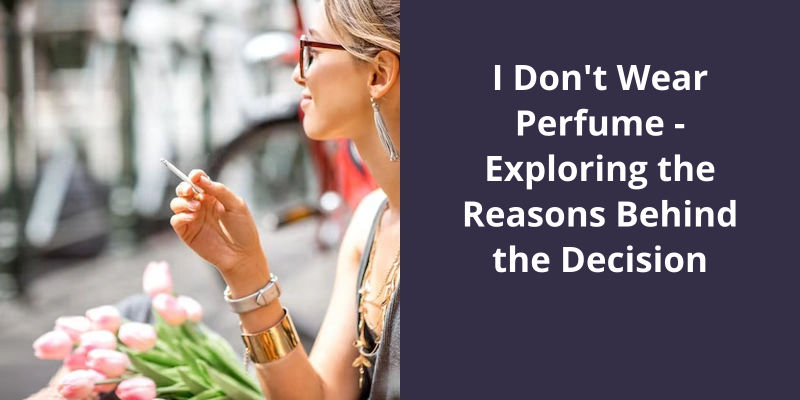Colognes that don’t give headaches are those that are typically light, fresh, and comprised of natural ingredients. These options primarily include varieties with lower concentrations of fragrance such as Eau de Cologne or Eau de Toilette. A few examples of such fragrances include “Acqua Di Gio” by Giorgio Armani and “Essential” by Lacoste, both of which have a soft and subtle scent due to their aquatic and citrus notes. Similarly, “Dior Homme” by Christian Dior and “Le Male” by Jean Paul Gaultier are popular choices as they come with gentle, non-overpowering aromas. Perfumes containing lavender, chamomile, and jasmine can also be beneficial as these ingredients are known for their soothing properties that are less likely to cause headaches. However, it’s important to remember that everyone has a unique body chemistry and what might be gentle for one person could potentially be irritating for another. Therefore, when choosing a cologne, it’s always best to try before investing in a full-sized bottle.

What Are the Best Scents for Migraine Sufferers?
For those who suffer from migraines, the search for relief can be overwhelming. There are countless medications and home remedies available to treat migraines, but what about scent? Peppermint is perhaps the most well-known scent for headache relief, with it’s cooling and soothing properties. Inhaling peppermint essential oil or applying a diluted version to the temples and neck can help alleviate pain and promote relaxation.
This herb has anti-inflammatory properties and is also known to improve circulation. Inhaling rosemary essential oil or using it in a massage oil can help reduce pain and tension. Lavender, too, is a popular scent for headache relief. This soothing scent has been used for centuries to calm the mind and promote relaxation. Inhaling lavender essential oil or using it in a diffuser can help ease migraine symptoms.
Chamomile is another scent that’s been found to be helpful for migraine sufferers. This herb is known for it’s calming properties and can help ease tension and reduce anxiety. Inhaling chamomile essential oil or using it in a bath or massage oil can help promote relaxation and relieve pain. Eucalyptus is also a beneficial scent for headache relief, with it’s analgesic and anti-inflammatory properties. Inhaling eucalyptus essential oil or using it in a steam inhalation can help reduce pain and promote relaxation.
It’s important to note that while aromatherapy can be a helpful tool for migraine relief, it isn’t a substitute for medical treatment. If you suffer from chronic migraines, it’s important to consult with your healthcare provider to develop a treatment plan that works for you. Aromatherapy can be used in conjunction with other treatments, such as medication and lifestyle changes, to help manage symptoms and promote overall wellbeing. So, don’t hesitate to incorporate some of these helpful scents into your routine to breathe in some relief.
The Science Behind How Scent Can Affect Migraine Symptoms
The connection between scent and migraine symptoms is still being researched. Some studies suggest that certain smells can trigger migraines, while others indicate that certain scents may alleviate symptoms like nausea and pain. Research on this topic is ongoing.
However, if you’re someone who enjoys wearing cologne, don’t worry! There are a few tips and tricks that you can use to wear it without getting a headache. It’s all about choosing the right scent, applying it properly, and being mindful of how much you use. Keep reading to learn more about how to wear cologne without getting a headache.
How Do You Wear Cologne Without Getting a Headache?
However, if you still want to wear cologne without getting a headache, there are certain tips that you can follow. First of all, start by choosing a fragrance that’s mild and not too overpowering. It’s important to consider your personal preferences here, but if youre susceptible to headaches, go for a lighter scent.
Another important tip is to apply cologne properly. You should never apply cologne directly onto your skin, as this can cause irritation and trigger headaches. Instead, spray the cologne onto your clothes or onto a scarf or handkerchief, which you can then wear around your neck or wrist.
Try using just a small amount of cologne and see how it feels. If you find that the scent is too strong for you, try diluting it with a small amount of water or carrier oil.
When choosing your cologne, think about the season and the occasion. Heavier, more masculine scents may be more appropriate for fall and winter, while lighter, fresher scents may be more appropriate for spring and summer. If youre going to a formal event, consider using a more subtle cologne that won’t overpower your outfit.
This means showering regularly and using a gentle, unscented soap. Dont apply cologne on sweaty skin, as this can make the scent more powerful and overwhelming.
Source: What should I do to stop headache caused by perfume?..
In addition to being a mood booster, perfume can also trigger migraines in some people. This makes it crucial to select a fragrance that’s gentle and soothing for your senses. As per fragrance expert Garçon-Pichon, Edeniste Neroli Sensuel could be a great option for individuals who suffer from migraine attacks. It’s stress-reducing formula makes it an ideal choice for those looking for a calming and refreshing perfume. Let’s explore more about how Edeniste Neroli Sensuel can be the best perfume for migraine sufferers.
Which Perfume Is Best for Migraine Sufferers?
This makes Neroli Sensuel a great option for those who experience migraines triggered by stress. The light, floral scent of neroli is also known for it’s calming effects, making it a soothing choice for migraine sufferers. Another great option is LOccitanes Lavender Eau de Cologne. Lavender has been shown to have a relaxing effect on the body and mind, and the simple, natural scent of LOccitanes cologne is perfect for those looking for a subtle fragrance that won’t overwhelm.
For those who prefer a more complex fragrance, Maison Francis Kurkdjians Aqua Celestia Forte is a sophisticated choice. This scent features notes of lime, cool mint, and blackcurrant, creating a refreshing and energizing aroma that can help combat the fatigue often associated with migraines. The use of calming musk and hedione also make this fragrance a good pick for migraine sufferers who want to feel more relaxed.
One of the most popular fragrances for migraine sufferers is Jo Malones Peony and Blush Suede Cologne. This scent features a delightful combination of peony, rose, and jasmine notes, creating a light and romantic fragrance thats perfect for everyday wear. The use of suede and musk give this scent a unique warmth that can help relieve tension and anxiety, both common triggers for migraines.
Ultimately, the best scent for migraine sufferers will depend on individual preferences and sensitivities.
The Science Behind How Certain Scents Can Alleviate Migraine Symptoms.
Studies have shown that certain scents, such as lavender, peppermint and rose, can help alleviate migraine symptoms by activating the olfactory nerve and promoting the release of neurotransmitters that reduce pain and inflammation. Additionally, these scents can help promote relaxation and reduce stress, which can trigger migraines in some individuals.
Migraines can be triggered by a variety of scents, from perfumes to household cleaning products. These triggers can cause intense pain and discomfort, and can be difficult to avoid in everyday life. In this article, we’ll explore some common migraine triggers and ways to minimize their impact on your life.
What Scents Trigger Migraines?
Migraines are a neurological condition that affects millions of people worldwide. Migraines are often characterized by a severe headache that’s accompanied by sensitivity to light, sound, and smells. Certain scents are known to trigger migraines in some individuals, making it important to identify these triggers and avoid them.
Perfumes contain a variety of chemicals that can irritate the nasal passages, and this irritation can worsen during a migraine. People with migraines should be cautious when choosing perfumes and opt for non-fragranced products whenever possible.
Febreze is another scent that can trigger migraines. Febreze is a popular air freshener that’s used to eliminate odors in the home. The chemicals in Febreze can be overwhelming for some people, and prolonged exposure can lead to a migraine. Individuals with migraines are advised to avoid products like Febreze and instead use natural air fresheners such as essential oils or beeswax candles.
Cigarette or marijuana smoke is another migraine trigger that individuals need to be aware of.
Patchouli is an essential oil that’s been known to trigger migraines. Individuals with migraines should be cautious when using essential oils and avoid those that are known to trigger migraines.
Anything with a “linen or clean laundry” scent can also trigger migraines. These scents are commonly found in laundry detergents, fabric sprays, and other cleaning products.
Gasoline is another scent that can trigger migraines. Individuals with migraines should avoid pumping gas whenever possible or wear a mask while doing so.
Identifying and avoiding migraine triggers is an important step in managing migraines. This may involve avoiding certain products or wearing a mask when exposed to migraine triggers.
Other Fragrance and Scent Triggers of Migraines Apart From Perfumes, Febreze, Patchouli, and Linen Scent, What Other Fragrances and Scents Can Trigger Migraines? Are There Any Scents That May Be Soothing and Helpful for Migraine Sufferers?
This article discusses fragrance and scent triggers of migraines beyond common triggers like perfumes and Febreze. It also explores the possibility of certain scents being helpful for migraine sufferers.
Many people have long suspected that strong fragrances can be a trigger for headaches, migraines, or other reactions. Despite ongoing research, the scientific community hasn’t yet come to a consensus on whether all perfumes cause headaches or not. However, some researchers have found that some fragrances can cause blood vessels in the brain to pulsate, potentially leading to headaches or migraines.
Do All Perfumes Cause Headaches?
To understand whether all perfumes cause headaches, it’s necessary to explore the potential causes of fragrance-induced headaches. While the phenomenon isn’t fully understood, some believe that the pulsation of blood vessels in the brain is a key factor. This is because certain fragrances may stimulate nerve endings in the nasal passages, triggering the release of chemicals that cause this pulsation.
While some studies have linked fragrance to headaches, the evidence isn’t yet conclusive.
Despite the lack of clarity around fragrance-induced headaches, some manufacturers are taking steps to reduce the risk of adverse reactions. For example, some perfume companies are now producing fragrance-free alternatives for individuals who’re particularly sensitive to fragrances. Others are using natural ingredients or reducing the concentration of synthetic fragrances in their products to minimize the risk of side effects.
As research continues to shed light on the potential causes and effects of fragrances on the brain, it’s likely that we will see new approaches to fragrance design and regulation, aimed at reducing the risk of adverse reactions in susceptible individuals.
The Use of Aromatherapy and Natural Fragrances as Alternatives to Synthetic Perfumes for Those Who Experience Adverse Reactions
- Lavender essential oil
- Peppermint oil
- Rosehip oil
- Eucalyptus oil
- Tea tree oil
- Lemongrass oil
- Bergamot oil
- Chamomile oil
- Neroli oil
- Patchouli oil
Conclusion
In conclusion, finding the perfect fragrance that doesn't cause headaches can be a daunting task. However, it's important to remember that selecting the right scent for you is all about trial and error. Fragrances that work for one person may not work for another. By choosing colognes that are formulated with high-quality ingredients, natural essential oils and free from harsh chemicals, it's possible to reduce the likelihood of experiencing negative reactions to fragrances. Additionally, taking the time to understand your individual scent preferences and knowing how to properly apply and layer fragrances can help ensure a more pleasant and enjoyable experience.





